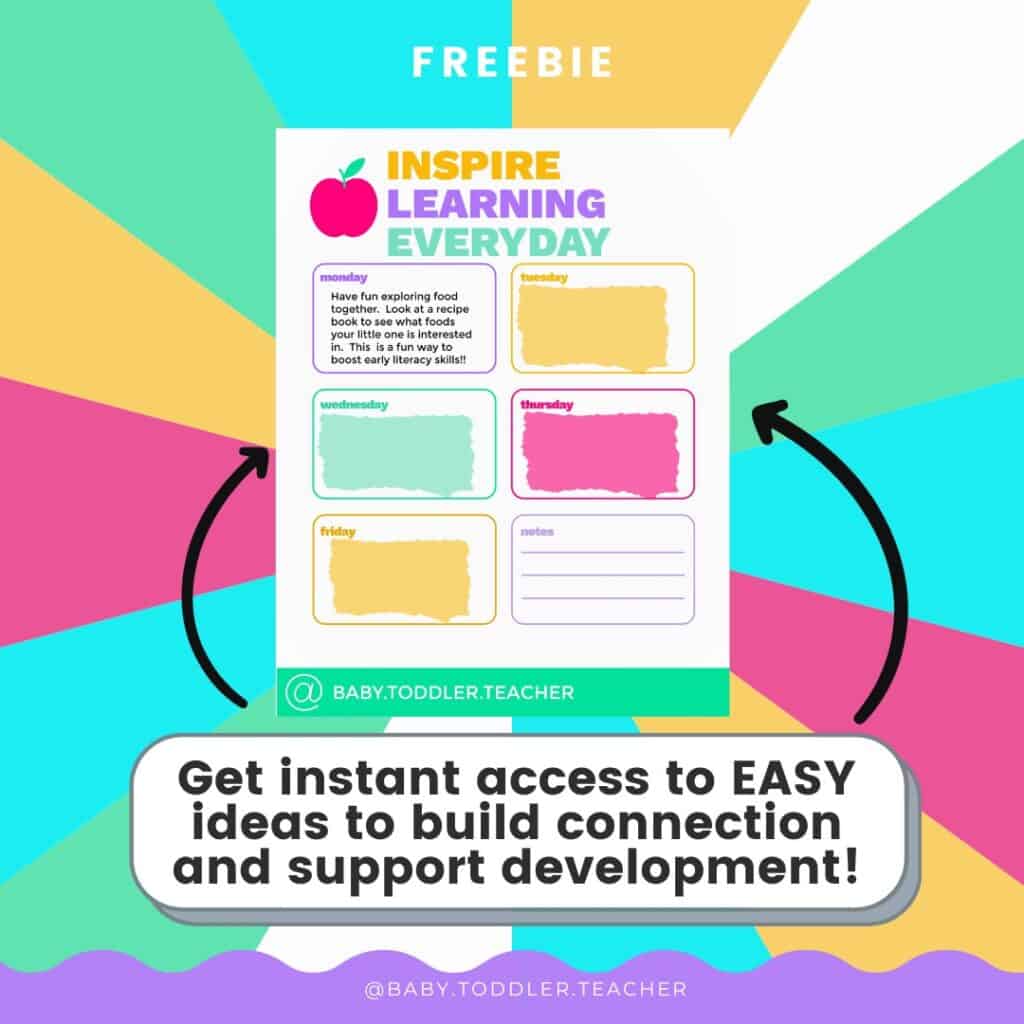It’s a well-known fact that incorporating social-emotional activities into your baby’s day is a great way to support your baby’s development.
These activities can involve playful interaction with parents, caregivers, and other children.
Infants learn best by exploring their environment and engaging in hands-on activities.
So get ready to have some fun with your little one!
In this article, we’ll discuss some of the best social-emotional activities for infants that I have learned from being a Developmental Therapist that specializes in babies and toddlers, and also a mom of two!
If you enjoyed this article you may also want to check out my article all about social-emotional activities for toddlers.
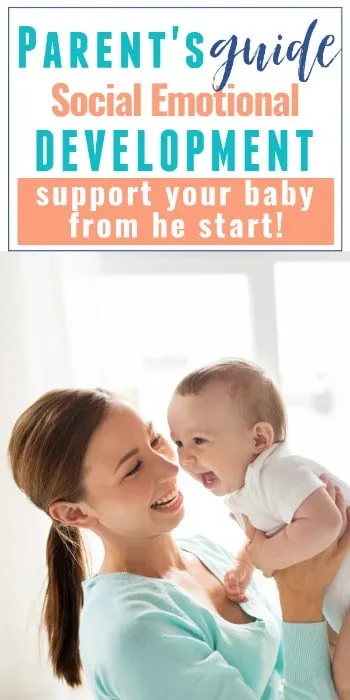
(This post may contain affiliate links. To read our full disclosure policy click here.)
What is social-emotional development in infants?
Social-emotional development in infants refers to the process by which infants develop social and emotional skills.
This includes the ability to regulate emotions, express feelings, and relate to others.
During the first few months of life, babies learn to socialize through eye contact, facial expressions, and cooing.
As they continue to grow, they begin to show more advanced social and emotional skills, such as sharing and turn-taking.
For social-emotional development to occur, caregivers need to provide love, support, and positive reinforcement.
In this article, I will give you lots of ideas on how to do this!
By creating a warm and nurturing environment, caregivers can help their infants develop the social-emotional skills that are essential for a healthy and happy life.

Why is emotional and social development so important?
Social-emotional development in infants is important for several reasons.
For one, social-emotional development helps infants to develop a sense of self.
This is important because it helps infants to understand their own needs and feelings and to be able to regulate their emotions in the future.
Additionally, social-emotional development helps infants to develop relationships with others.
This is important because it helps infants to develop a sense of connection and attachment and to learn how to communicate and interact with others.
Emotional milestones are just as important as other developmental milestones such as motor, language, and cognition, and need to be supported just the same.
The Best Social-Emotional Activities for Infants
There are many great social-emotional activities that you can do with your infant.
Here are some easy things that you can try out today!
Teach your Baby about Emotions and Support Brain Development through Reading
One way to support your infant’s social and emotional development is by reading to them regularly.
Reading aloud to your child can help them to develop a love of books, as well as improve their language skills.
Additionally, reading together can be a bonding experience for both you and your child which helps to build healthy relationships.
When reading to your baby point out the emotions that you see in any book to get them familiar with emotional vocabulary.
There are also some great books for babies that are specifically about emotions that you can read together.
You can find some of my favorites HERE.
Singing to Encourage Child Development
Singing together is another great way to support your infant’s social and emotional development.
Not only is it fun, but it can also help your child to develop a sense of rhythm and improve their language skills.
This is easy to add to just about any routine throughout the day so that your little one gets lots of repetitive practice.
When you are changing your baby’s diaper it can be the perfect opportunity for a song as they are laying on their back looking right up at you!
Singing to them during this routine can be a great way to help them feel relaxed and comfortable.
There are lots of great songs about emotions that you can sing to your infant.
You can find some of my favorites HERE.
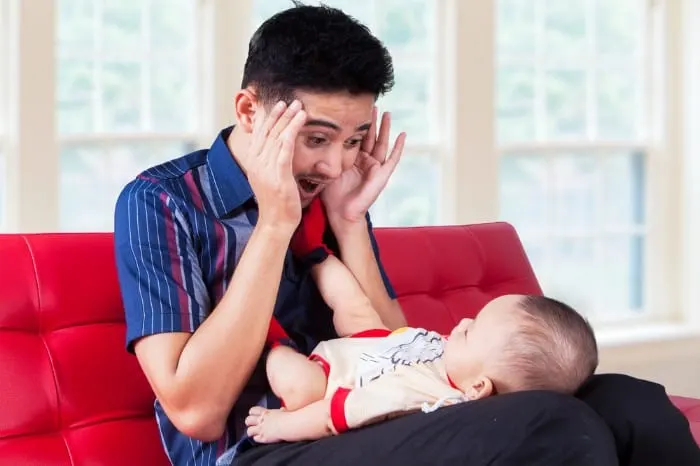
Playing Peek-a-Boo During Daily Routines
This classic game is not only fun for infants but also helps them to develop important social and emotional skills.
Peek-a-boo helps infants to understand the concept of object permanence, which is the idea that objects continue to exist even when they cannot be seen.
Additionally, playing peek-a-boo can help infants to develop trust and feel secure in their relationships.
Hold and Cuddle Your Infant
Have you ever heard the phrase “If you hold your baby too much you will spoil them?”
This is completely false!
Holding and cuddling your infant is also important for their emotional development.
Physical contact helps infants feel loved and secure, which are essential for their development.
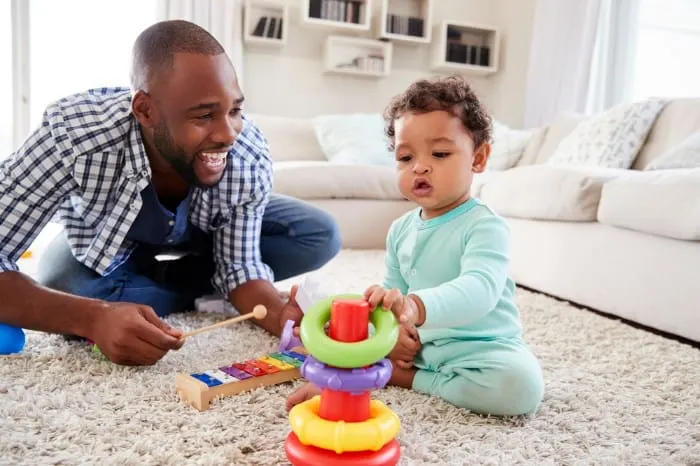
Let Your Baby Explore Toys
Playing with toys together is a great way to support your infant’s social-emotional development.
Toys provide an opportunity for you to model different emotions for your little one, such as happiness, sadness, anger, and fear.
You can narrate what you are doing during playtime as a way to talk about feelings.
For example, you could say something like “I am not able to get this puzzle piece in and it is making me feel frustrated!”
Toys also give your child a chance to practice expressing their own emotions through imaginary play.
Support Your Baby’s Social-Emotional Development
I hope this article has given you some ideas that you can try out today to support your child’s social-emotional skills.
If you are looking for more resources on developmental milestones make sure to check out my parenting resources!
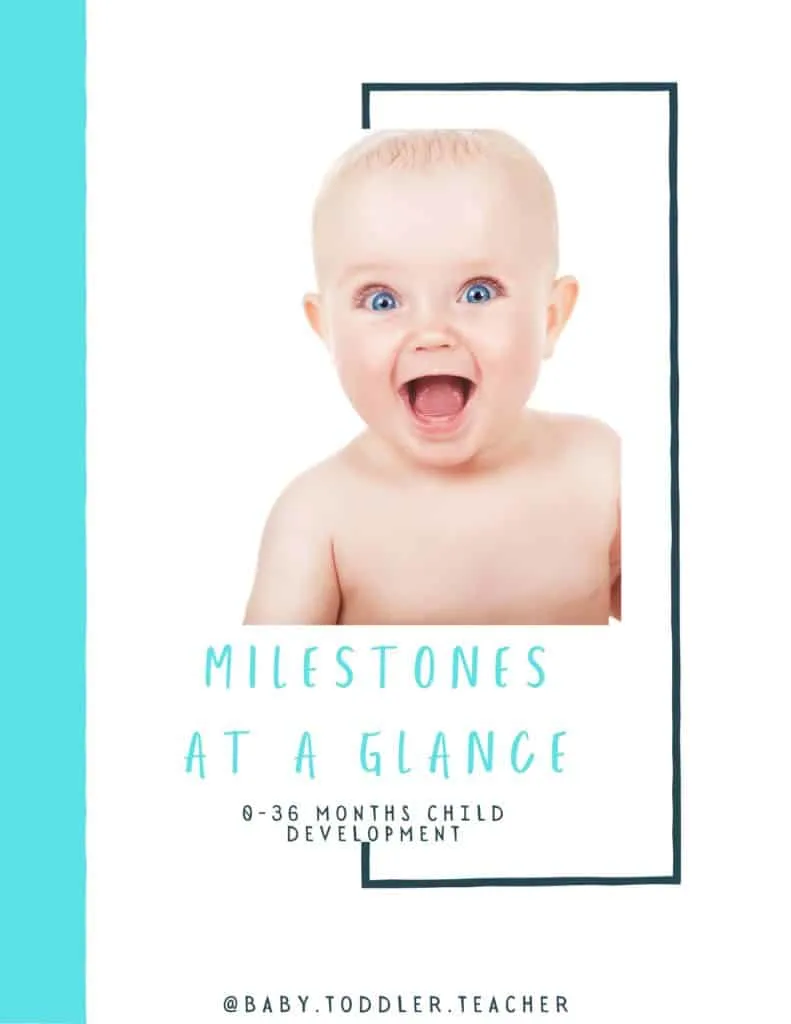
Grab your FREE Milestone Guide HERE.
Frequently Asked Questions
Keep in mind that all babies develop at their own pace. Some milestones that you can watch for that follow under social-emotional include things like:
• Recognizing familiar faces and beginning to show a preference for certain people
• Showing stranger anxiety or wariness around new people
• Expressing a range of emotions including happiness, sadness, anger, and fear
• Playing simple games
If you are ever concerned about your child’s development, it is always best to consult with your child’s pediatrician or reach out to your state’s early intervention program.
They will be able to provide resources and support if needed.
Related Posts You Will Enjoy
A Parent’s Guide to Separation Anxiety in Babies
The Best Baby Activities for 3-Month-Olds
Baby Standing Milestone: Everything You Need to Know
Best Baby Toys for Fine Motor Skills
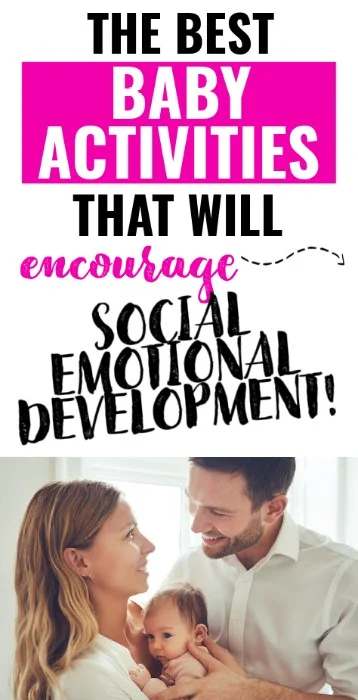

Kayla O’Neill has a master’s degree in education as well as a bachelor’s degree in special education with an emphasis in early childhood education. She has been working as a developmental therapist with babies and toddlers in early intervention since 2012. She is also a mom with two young children.
